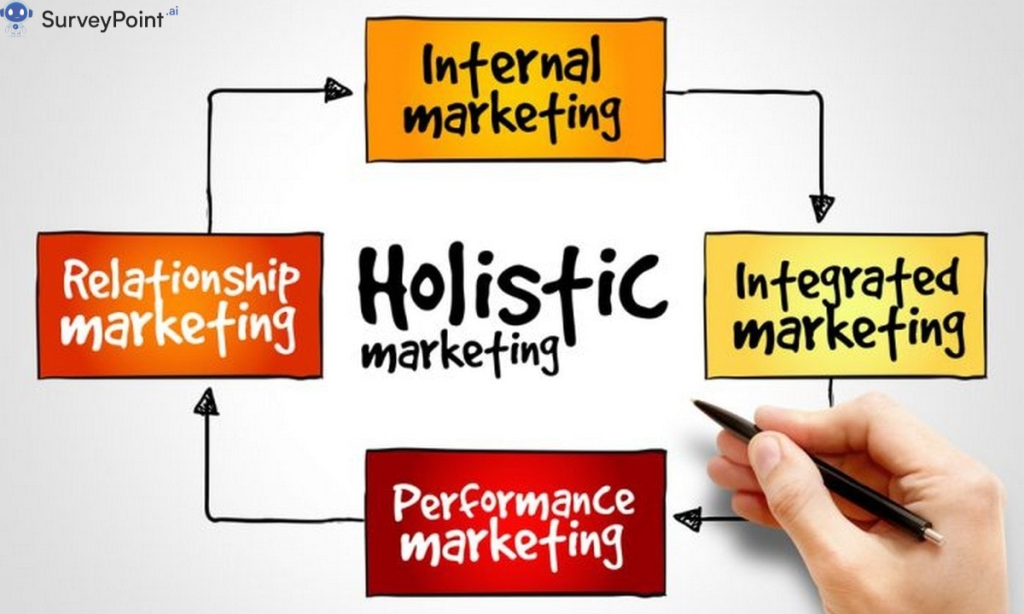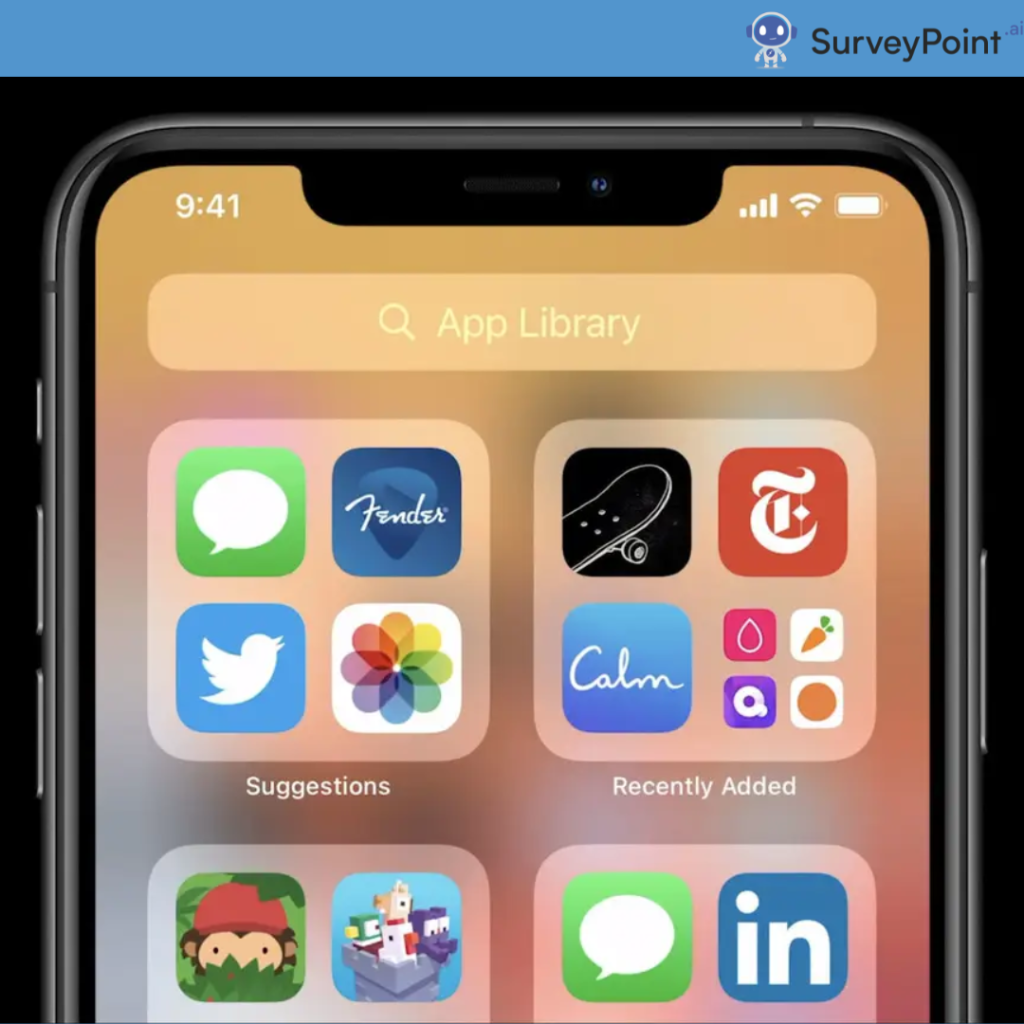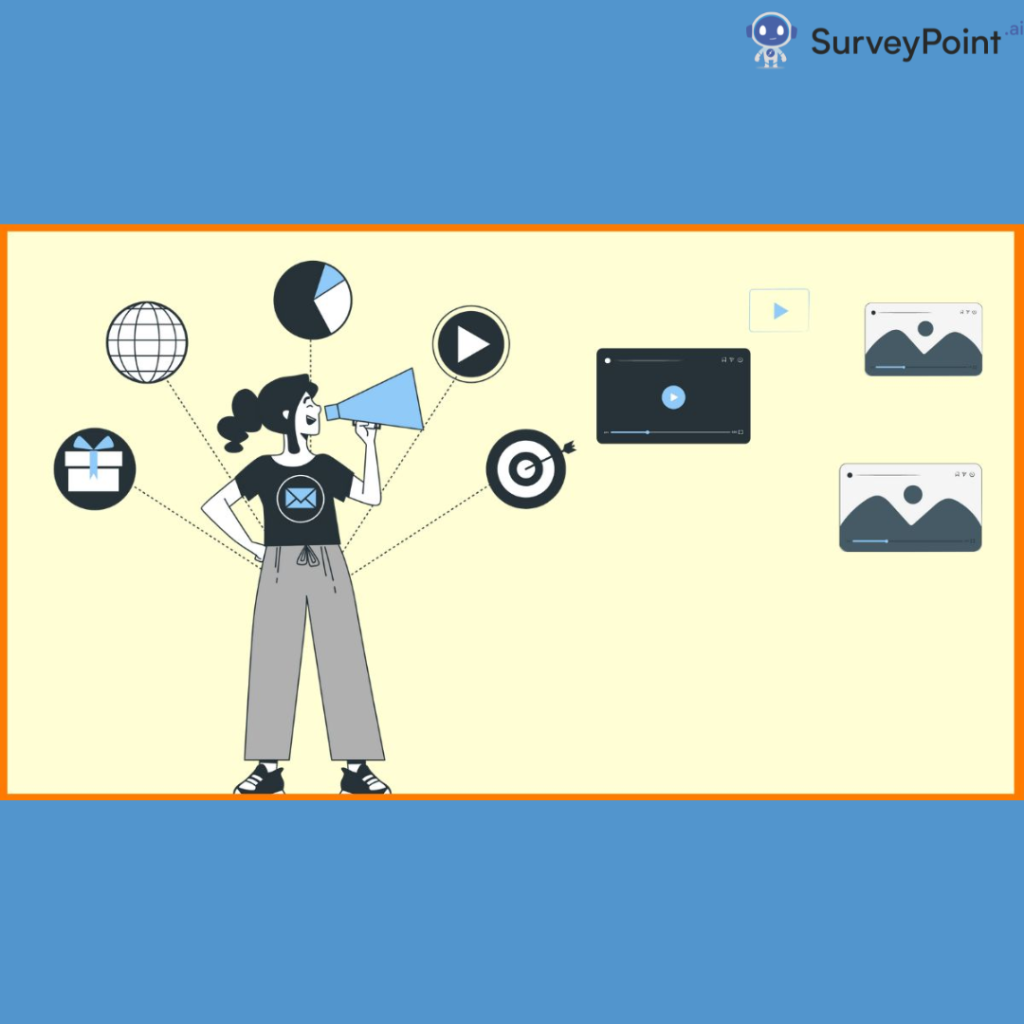
The term Holistic Marketing In today’s interconnected and fast-paced business environment, traditional marketing approaches are often insufficient for achieving sustained success. Companies need a comprehensive strategy that integrates all aspects of marketing to deliver consistent and impactful results. This is where holistic marketing comes into play. Holistic marketing is a strategy that considers the entire business and all its parts as a single entity, focusing on creating a unified and seamless experience for customers. This blog explores the concept of holistic marketing and how it can significantly benefit your company.
Understanding Holistic Marketing
Holistic marketing is an all-encompassing approach that integrates four key components:
- Integrated Marketing: Ensuring all marketing activities and channels work together seamlessly.
- Internal Marketing: Aligning and motivating employees at all levels to provide a consistent customer experience.
- Relationship Marketing: Building long-term relationships with customers, partners, and other stakeholders.
- Performance Marketing: Monitoring and evaluating the effectiveness of marketing efforts to achieve business goals.
By considering these components, companies can create a cohesive strategy that maximizes their marketing impact and drives growth.
Benefits of Holistic Marketing
1. Consistency Across Channels
Holistic marketing ensures that all marketing messages and brand experiences are consistent across all channels. Whether customers interact with your brand online, in-store, or through customer service, they receive a unified message that reinforces your brand’s values and promises.
2. Enhanced Customer Experience
A seamless and integrated approach to marketing leads to a better customer experience. By aligning all touchpoints and ensuring they work together, holistic marketing minimizes friction and creates a smooth journey for customers, from awareness to purchase and beyond.
3. Stronger Brand Identity
Holistic marketing helps in building a strong and recognizable brand identity. When all marketing efforts are aligned and consistent, it becomes easier for customers to recognize and remember your brand. This strong brand identity can lead to increased customer loyalty and advocacy.
4. Improved Employee Engagement
Internal marketing, a key component of holistic marketing, focuses on aligning and motivating employees to deliver on the brand promise. When employees understand the company’s mission and values and see their role in achieving business goals, they are more engaged and motivated. This leads to better performance and a more positive workplace culture.
5. Long-Term Customer Relationships
Relationship marketing emphasizes the importance of building long-term relationships with customers. By focusing on customer satisfaction and loyalty, companies can foster deeper connections with their customers. This leads to repeat business, positive word-of-mouth, and a strong base of loyal customers.
6. Efficient Resource Utilization
Holistic marketing ensures that all marketing efforts are aligned and working towards common goals. This reduces duplication of efforts and ensures that resources are used efficiently. By having a unified strategy, companies can optimize their marketing spend and achieve better results.
7. Data-Driven Decision Making
Performance marketing, another key component of holistic marketing, involves monitoring and evaluating the effectiveness of marketing efforts. By analyzing data and measuring performance, companies can make informed decisions and continuously improve their marketing strategies. This data-driven approach leads to better outcomes and a higher return on investment (ROI).
Implementing Holistic Marketing
1. Develop a Unified Marketing Strategy
Start by developing a comprehensive marketing strategy that integrates all aspects of your business. Ensure that your marketing goals align with your overall business objectives and that all departments are working towards the same vision.
2. Foster Collaboration
Encourage collaboration between different departments and teams within your organization. Regular communication and collaboration ensure that everyone is on the same page and working towards common goals.
3. Invest in Employee Training
Invest in training and development programs for your employees. Ensure they understand the company’s mission, values, and marketing strategies. Engaged and knowledgeable employees are more likely to deliver a consistent and positive customer experience.
4. Leverage Technology
Use technology to integrate and streamline your marketing efforts. Marketing automation tools, customer relationship management (CRM) systems, and data analytics platforms can help you manage and measure your marketing activities more effectively.
5. Focus on Customer Feedback
Regularly collect and analyze customer feedback to understand their needs and preferences. Use this information to improve your products, services, and marketing strategies. By keeping the customer at the center of your marketing efforts, you can build stronger relationships and drive long-term success.
6. Monitor and Evaluate Performance
Continuously monitor and evaluate the performance of your marketing efforts. Use key performance indicators (KPIs) and metrics to measure success and identify areas for improvement. Regular evaluation helps you stay agile and make necessary adjustments to your strategy.
Conclusion
Holistic marketing is a powerful approach that can elevate your company to new heights. By integrating all aspects of marketing and focusing on creating a unified and seamless experience for customers, you can build a strong brand, enhance customer loyalty, and achieve sustainable growth. Implementing a holistic marketing strategy requires a commitment to collaboration, continuous improvement, and a customer-centric mindset. Start today by embracing the principles of holistic marketing and watch your business thrive. For more information- surveypoint.ai




